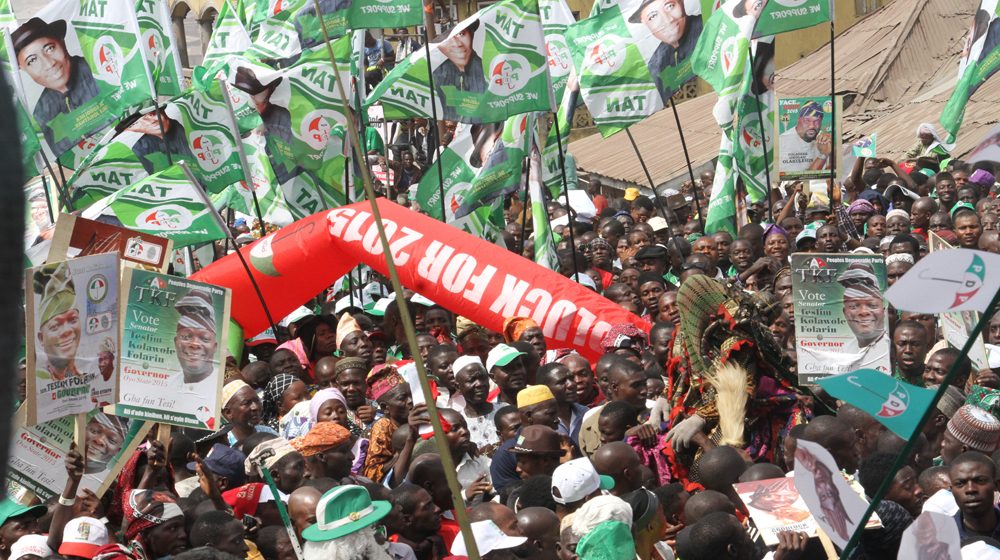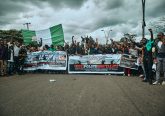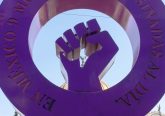The 2019 presidential election will mark a defining moment in Nigeria’s hectic political history. Tensions are rising ahead of the elections in February when the polls will mark the first contest after an opposition leader defeated an incumbent president since the return to civilian rule in 1999.
In the 2015 election, the All Progressives Congress (APC) defeated then-President Goodluck Jonathan’s People’s Democratic Party (PDP). Today, APC faces the prospect of electoral defeat just four years after it came into power. Neither President Muhammadu Buhari, nor any of the likely main opposition candidates, has a clear support base.
In the lead-up to Nigerians heading to the polls in early 2019, the deteriorating security situation of Africa’s largest economy is particularly worrying. Communally-motivated violence continues to be reported throughout the country. Outbreaks of violence between Fulani herdsmen and farmers have been recorded in nearly all the states, albeit with more occurrence in the Middle Belt, as well as Adamawa and Taraba in the Northeast. They are largely driven by communal rivalries and competition for resources, particularly in rural areas, where a significant proportion of the population subsists on their land.
For instance, attacks targeting security installations, as well as civilian locales such as markets and transport hubs, have occurred in the Borno State. According to a media report citing undisclosed military sources, Islamist militants suspected to be members of Islamic State in West Africa (ISWA) killed at least 30 soldiers in an attack on a military base in Zari village in the Guzamala Local Government Area (LGA) of Borno State on Thursday, 30 August. While military authorities have since refuted the reports, if accurate, it would represent one of the largest attacks of its kind this year. In mid-July, 20 Nigerian soldiers reportedly went missing following a clash with Islamists in the Bama area of Borno.
Furthermore, according to press accounts, on Sunday, 9 September, scores of ISWA fighters overran troops and took control of Gudumbali town in the Guzamala LGA. Local media sources, citing undisclosed local officials and security sources, indicate that the encounter occurred when the Islamists attacked Gudumbali community, setting fire to homes and occupying a military base. The Islamists reportedly stormed the military base on Friday evening and fought with government forces until Saturday morning when they were forced to withdraw.
The aforementioned attacks exemplify the challenge to secure the Northeast months ahead of the February election, given that the military has been overstretched from engagements in multiple ongoing security operation across the country. The occurrence of such incidents runs counter to the narrative that the government would like to advance. In late August, authorities urged thousands of displaced people to return to Guzamala, despite continuing insecurity, to show their progress in the war against insurgency six months ahead of the presidential election.
The 2015 election was fundamentally a protest vote against the person of President Goodluck Jonathan. The votes of many were driven by alleged widespread corruption and rampant insecurity in the northeast zone, rather than an affirmative vote for the opposition candidate, Muhammadu Buhari. Both the ruling PDP and opposition APC party at the time made lofty promises regarding counterinsurgency. In July of this year, authorities named the fourth commander in 14 months, to lead the fight against the Islamist militants after a surge in attacks, despite the government’s assertion since late 2015 that the Islamists had been defeated.
An upsurge in violence by Fulani herdsmen continues to threaten Nigeria’s unity. According to the National Emergency Management Agency (NEMA), more than 120 people were killed in Benue and neighbouring states of Taraba and Adamawa in early 2018. The incidents continue to fuel speculations of possible alliance between Boko Haram elements and Fulani herdsmen. Irrespectively, the intensity and recurrence of attacks on farming communities in the Middle Belt over the past few years remains highly problematic.
Despite the huge challenges Nigeria faces, the country is often seen as Africa’s proverbial cat that always lands on its feet, no matter the height from which it falls. Indeed, of the many mysteries about the West African nation, one of the most enduring, overarching and confounding is the country’s fervent conviction in its ability to manage its multitude of internal conflicts.
However, the situation has worsened to the point that the electoral contest will hardly end up unaffected. The themes of 2019 election are likely to focus on the confluence of clashes between herdsmen and farmers, pervasive ethnic clashes, Boko Haram insurgency, and security challenges in the Middle Belt, as well as worsening kidnapping incidents across the country. Additionally, competing claims to the presidency between the old and the young generations of politicians, perceived political bias of federal security agencies and factional hostilities remain potential triggers for unrest ahead of the 2019 elections. As such, the polls may well turn into a remonstration vote against the ruling party.







